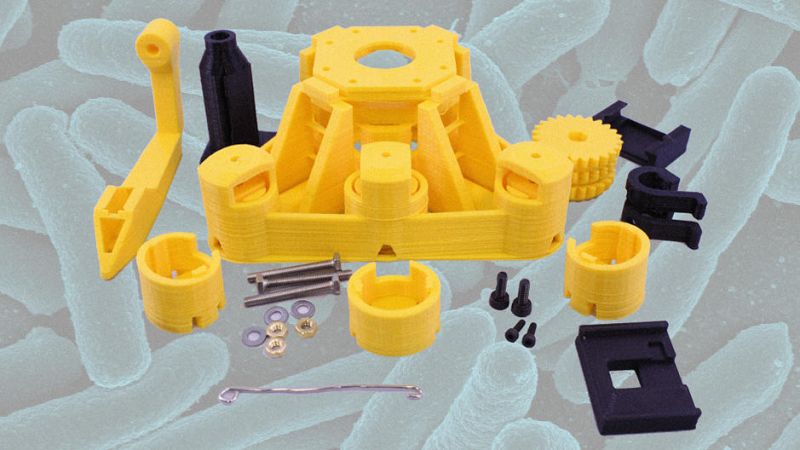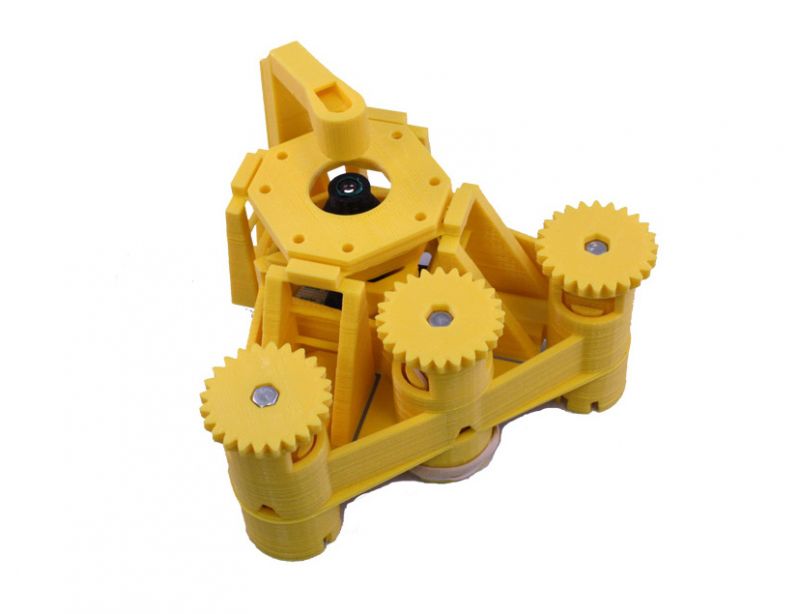This 3D-Printed Microscope Lets You Test Water Anywhere
Published on by Water Network Research, Official research team of The Water Network in Technology
With just a Raspberry Pi-powered camera, this 3D-Printed microscope will tell you if there are bacteria in your drinking supply.

You can download the recipe for the OpenFlexure microscope from GitHub, feed it into a 3D printer and, combined with a little camera and computer, you have a way to observing bacteria at the cellular level.
The kit is central to a new project that aims to reduce the cost of water-testing in the developing world and keep more people from getting water-borne diseases. Currently, almost one in 10 people still go without verifiably clean water.
The microscope was developed at Cambridge University, in the U.K., and is part of the WaterScope initiative from five researchers there. It's currently being tested by Oxfam, the British charity, which sees it as a way of speeding up water-testing in out-the-way places.
Traditional microscope testing is "quite complex and it takes a long time to get a result," says Alex Patto, CEO and cofounder of the company. "Our test is simpler, faster, and cheaper, so we can get more tests done in a shorter amount of time."
As well as the microscope itself, Patto's team is also developing a one-use "consumable" chip that keeps a sample sterile and allows an ordinary non-technical person to test water without professional intervention.
Patto sees the kit being used by villages to self-test their water, in emergency situations, like after earthquakes, or by charities like Oxfam that want to test the integrity of new wells and boreholes. To meet WHO standards, the microscope has to be able to detect a single e.coli bacteria in half a cup of water.
 The 3D-printed parts include stages that move up and down and side to side and an arm that holds a battery-powered Raspberry Pi camera module above. The camera searches for bacteria and makes a record of what's in the sample, allowing results to be transferred to the internet and stored.
The 3D-printed parts include stages that move up and down and side to side and an arm that holds a battery-powered Raspberry Pi camera module above. The camera searches for bacteria and makes a record of what's in the sample, allowing results to be transferred to the internet and stored.
The project has received about $100,000 in public funding so far. Most of the IP isn't proprietary. Though WaterScope may patent the consumable, the microscope and Raspberry Pi set-up is available for anyone to exploit.
"What drives us is impact not profits," Patto says. "If someone wants to copy us, that's fantastic. That's what we want. It's a way of solving the problem, and we can do something else."
Source: Fast CoExist
Attached link
http://www.youtube.com/embed/fHv1to_YjkAMedia
Taxonomy
- Treatment
- Water Treatment & Control
- Technology
- Drinking Water
- water treatment
- Pollution